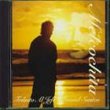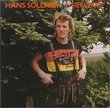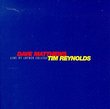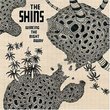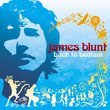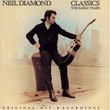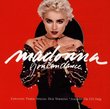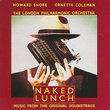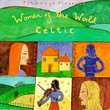| All Artists: Pete Seeger Title: If I Had a Hammer: Songs of Hope & Struggle Members Wishing: 3 Total Copies: 0 Label: Smithsonian Folkways Original Release Date: 5/19/1998 Release Date: 5/19/1998 Genres: Country, Folk, Pop, Children's Music Styles: Classic Country, Traditional Folk Number of Discs: 1 SwapaCD Credits: 1 UPC: 093074009628 |
Search - Pete Seeger :: If I Had a Hammer: Songs of Hope & Struggle
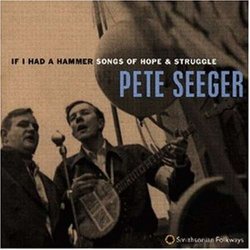 | Pete Seeger If I Had a Hammer: Songs of Hope & Struggle Genres: Country, Folk, Pop, Children's Music
For over 50 years Pete Seeger's music has included songs on labor, civil rights, peace, and the hope for a better world. This CD contains 24 tracks selected from hundreds released on Folkways Records in the late 1950s and ... more » |
Larger Image |
CD DetailsSynopsis
Album Description For over 50 years Pete Seeger's music has included songs on labor, civil rights, peace, and the hope for a better world. This CD contains 24 tracks selected from hundreds released on Folkways Records in the late 1950s and 1960s and 2 new songs recorded especially for this collection. Pete plays the 5-string banjo and the 12-string guitar, and appears on some tracks with Almanac Singers and his grandson Tao Rodriguez. Booklet contains detailed notes by Mark Greenberg and a complete discography of Pete Seeger on Folkways. 71 minutes. Similar CDs
Similarly Requested CDs
|
CD ReviewsPete Seeger as a protest folksinger, the Folkways recordings Lawrance M. Bernabo | The Zenith City, Duluth, Minnesota | 07/09/2004 (5 out of 5 stars) "My introduction to Pete Seeger was when he contributed to the cancellation of "The Smothers Brothers Comedy Hour" when he showed up in 1967 and sang "Waist Deep in the Big Muddy," a song which attacked the Vietnam War and President Lyndon Johnson, albeit through a metaphorical narrative. Eventually I learned that Seeger is arguably the key figure in the folk music movement of the 20th century, a living link between Woody Guthrie (Seeger and Guthrie formed the Almanac Singers) and Bob Dylan. But certainly Seeger was more passionate about politics, the environment, and humanity than either of those gigantic figures. The fact that he was blacklisted during the McCarthy era is enough to establish his bona fides, but so is his career, begun in the late 1930s and continuing through several wars, a dozen causes, and thousands of union meetings. Then there are Seeger's Folkways recordings, that were the first sound of authentic American folk music heard by countless children."If I Had a Hammer: Songs of Hope & Struggle" is a collection of the best of Seeger's Folkways recordings from the late 1950s and early 1960s. This is the Pete Seeger who was always singing for a cause, and after the original 1956 version of "If I Had a Hammer," written by Seeger and fellow Weaver Lee Hays, you can see how these songs are organized by common themes. First up are songs about the struggle of the American unions and labor movement (tracks 2-9), which offers "Which Side Are You On?", "Casey Jones (The Union Scab)," "Joe Hill," Guthrie's "Union Maid," and, of course, "Solidarity Forever," all sung by Seeger in his clear voice accompanied by the banjo.Beginning with "Where Have the Flowers Gone?," Seeger's other most recognizable original tune, the songs deal with the peace movement (tracks 10-14), which includes "Last Night I Had the Strangest Dream" and "Study War No More (Down by the Riverside"). Starting with Leadbelly's "Burgeois Blues" and ending with the traditional "We Shall Overcome," are songs about the civil rights struggle (tracks 15-18). The final segment of the album (tracks 19-26) are devoted to general songs of hope and struggle, the most recognizable of which will be "Turn! Turn! Turn! (To Everything There Is a Season") late doen by the Byrds. There are also a couple of songs recorded in 1998, "We'll All Be A-Doubling" and "Arrange and Rearrange," which show that in recent years the voice has become weaker but that the spirit remains strong.The liner notes are instructive, detailing the origins of each song and how they have changed over the years. When you listen to these songs you too will become convinced that the only authentic folk music is about political ideas. But then Seeger and Lee Hays, along with Ronnie Gilbert and Fred Hellerman, formed the Weavers who popularized more traditional folksongs and spirituals like "Kisses Sweeter Than Wine," and "Goodnight Irene." To fully appreciate American folk music you simply have to have both a Weavers hit collection and a collection of Seeger's Folksway songs, like "If I Had a Hammer: Songs of Hope & Struggle."" A GEM OF A COLLECTION Lawrance M. Bernabo | 11/22/1998 (5 out of 5 stars) "I learned many of the songs on this album (Union Maid, Banks of Marble, Joe Hill, Which Side Are You On, Solidarity Forever,etc.) when I went to Camp Kinderland from 1972 - 75. Unfortunately, I couldn't find recordings of these songs once I went off to college in the 1980s. I did find one or two songs on old scratchy records in my folks' record collection, but that was it. What a joy to listen to these songs! I learned quite a few new tunes from the CD. The newly released songs are quite a hoot. I sang "Step by Step" in a chorus Mr. Seeger organized for a Labor Day celebration this year, and referred to the CD for practice on my own. The liner notes are informative and the choice of songs superb. Pete Seeger is a part of American history and these recordings are precious indeed! This CD has renewed my interest in folk and protest music." Pete Seeger sums up the disposession we all feel. Tad Nastic | 09/21/1998 (4 out of 5 stars) "Pete Seeger, the golden throated voice of the peace movement speaks for all of us through this recording. His unrivaled banjo and 12-string guitar ring resound through this recording. Thank God for Pete Seeger!"
|

 Track Listings (26) - Disc #1
Track Listings (26) - Disc #1
